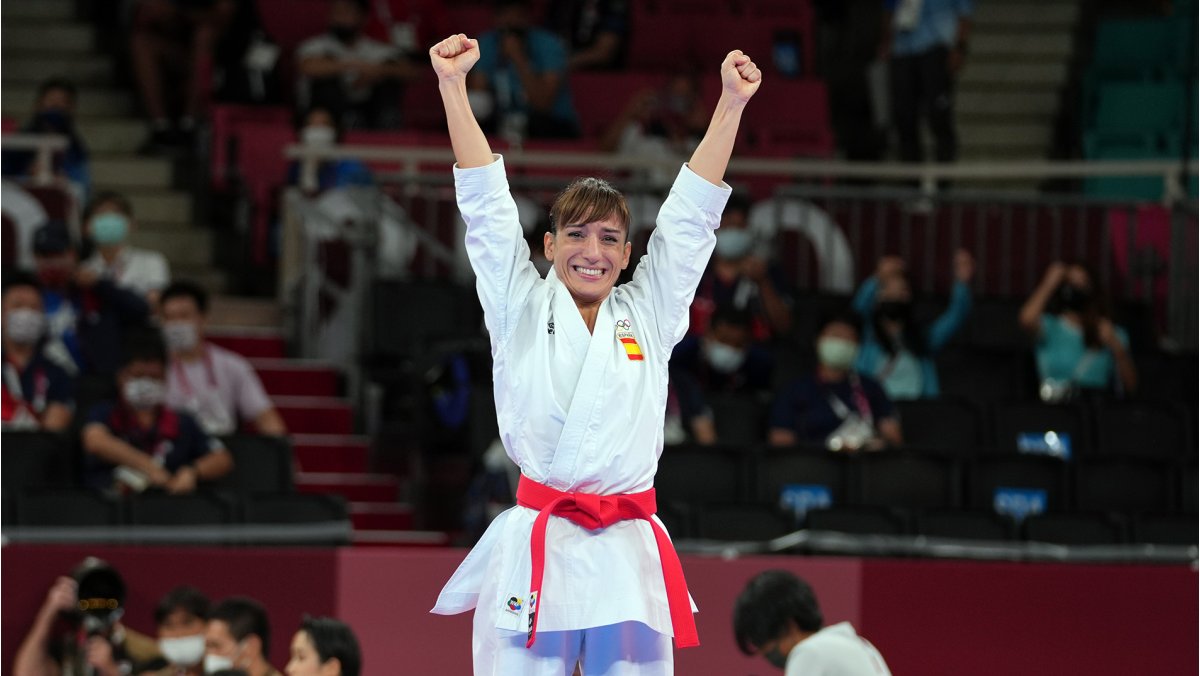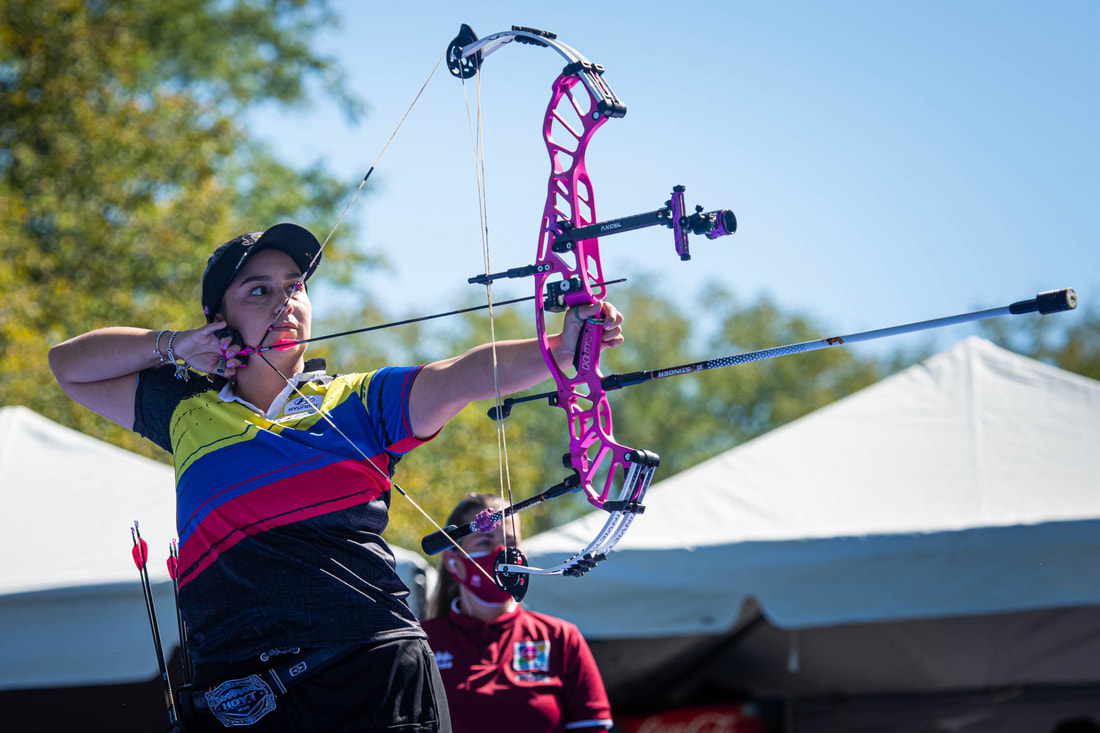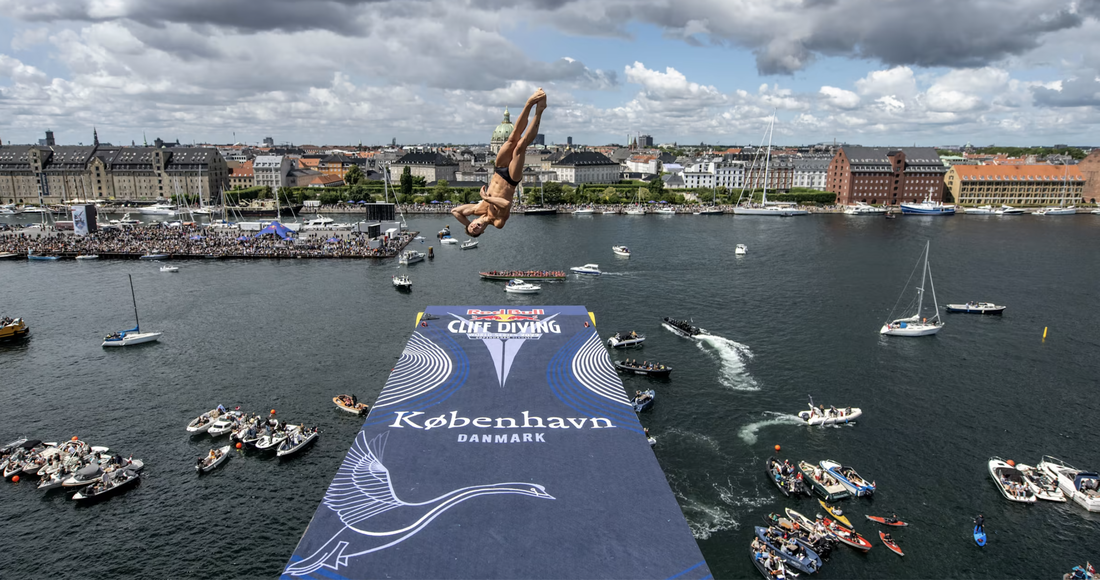Which Sports Events Should Be in the Summer Olympic Games?
That LA28 invitation went to nine governing bodies: breaking (which is set for Paris 2024 inclusion), baseball & softball and karate (both of which were unfortunately dropped after Tokyo 2020), squash, flag football, lacrosse, cricket, kickboxing, and motorsports.
Flag football would seem a stretch to this rather traditionalist, but there has been world championship events since 2002, and a way for 'American football' to receive a foothold into the Games. But I never thought I'd see breaking in the Games, either. We'll see what develops after these nine sports make their cases later this month. Current guidelines call for an overall athlete cap of 10,500 plus a global youth appeal, limited operation complexity, and sustainable environmental impact.
I know, not every sport can (or should) be in the Games. But in the meantime, though, below are my thoughts on the top ten sports or sport disciplines that I'd like to see make it into a Summer Olympic program. Or at least brought back as a demonstration sport!
What do you think should be in the Games? Let me know in the comments.
And check out my thoughts on recommended new Winter Olympic sports, too.
I have certainly brought squash up before. Squash had tried to get into the London 2012, Rio 2016, Tokyo 2020 and Paris 2024 Games. It's lost to golf, to karate, and to breaking. It's incredibly frustrating. Squash is a global game, easily watched, easily set-up in urban and compelling environments, and rich in history. Enough is enough; bring it in already.
p.s. if racquetball, a fellow Olympic 'Recognized Federation' ever makes it in before squash, the IOC may have some serious 'splaining to do.
Karate
The sport finally made it to the Olympic stage at Tokyo 2020. But while it was only ever admitted with the promise of that one Games, one must feel bad for the World Karate Federation to see, that, yes, the sport would not be on the Paris 2024 schedule. How are the WKF and its athletes supposed to best leverage the Tokyo 2020 experience when there isn't an Olympic podium defense available at the next Games? Let's hope the Olympic family has its appetite whet for a repeat inclusion.
Though, with taekwondo and judo both looking firmly steady on the Olympic program, the addition of karate may be tough with other combat sports such as wushu, sambo, and kickboxing also waiting.
Feel bad for karate? Baseball had been a demonstration sport eight times before its official addition to the Games at Barcelona 1992. It enjoyed five consecutive Olympic tournaments - with Chinese Taipei, Australia, Dominican Republic, and, of course, Cuba as medalists - before dumped for the next two Games. Brought back for Tokyo 2020, baseball again found itself on the chopping block. One suspects that the consistent absence of the sports top players at the Games has been a continued contributing factor. Might the draw of baseball at a Los Angeles-based Games be compelling enough?
Paired for gender equity with baseball, for better or worse, is softball since 1996. For worse, because softballs top stars do show up to the Games. Unfortunately, though, only five nations have won its 15 medals, and only Japan and the United States have won gold. Softball is tied to baseball for LA28 consideration, and both have extremely strong local draw appeal.
Compound Archery
Archery has been an Olympic sport since Munich 1972, and after four earlier appearances since Paris 1900. But that's with a recurve bow. Compound archery uses a different compound bow and has been included as a World Championship discipline since 1995. Aside from the Olympics, compound archery has been on equal footing with recurve since.
World Archery has officially proposed for an expansion of the sport to include compound at LA28. And with South Korea not as consistently dominant in compound as in recurve competition, the sport might see further increased diversity on an Olympic medal table. Fingers crossed!
High diving, at a height of 27 meters (men) and 20 meters (women) vs the 10 meter platform, has been an official FINA World Aquatics Championship event since 2013. And, while a lot of existing Olympic swimming and diving facilities might not be able to accommodate dives from high diving's heights, the Red Bull Cliff Diving World Series has been showcasing the location flexibility and simplicity - river banks! cliff sides! - of the sport since 2009.
There had been murmurs of a push for inclusion for Tokyo 2020, but conversation seems to have quieted. How cool would it be to see dives off the coast of Southern California or Brisbane (2032)?
Another non-Olympic discipline of an existing Olympic sport federation is acrobatic gymnastics. I've long been fascinated by the sport, in which pairs, triples, and quadruples of athletes perform intricate tumbling and, well, acrobatics.
Acrobatics has proper competitive history dating to the 1930s, with a world championships since 1974. Ten separate nations won medals across 16 events at this year's worlds, including Belgium and Portugal with multiple golds - nations not often associated with gymnastics prowess.
Another established gymnastics discipline option is tumbling, but I have a feeling parkour has a better shot than either knowing the youth-appeal-obsessed IOC these days...despite 'purists' ' objections.
Water Skiing
Back when I was a wee lad, I also was aware of water skiing as a competitive sport. Not that I participated or knew anyone that did - I just was eager to consume the wide world of sports. In the United States, water skiing competition started in earnest in 1939 and world championships have been held since 1949.
I suppose water skiing could have fallen under the aforementioned non-motorized clause in the IOC charter, but it's been an officially recognized sport since 1968 (!). So what gives? The presence of rowing and flat water canoeing means an Olympic-appropriate venue exists. Granted, though, water skiing doesn't feel very 'modern' though...
Lacrosse
Lacrosse has been an Olympic sport, at St. Louis 1904 and London 1908, as well as a Demonstration Sport three times. Since it's last appearance in 1948, though, there hasn't been much conversation traction -until recently, ahead of being one of the chosen prospect nine for LA28. Rugby's adaptation of a smaller, quicker sevens format, and basketball's 3x3 version, have spurred interest in pushing lacrosse sixes.
What's another abridged version of a sport to make its way in? A total of 46 (!) teams entered the 2018 men's field lacrosse (traditional version) world championship, including Philippines, Poland, Mexico, and Uganda. Plus signs for diversity!
Paris 1900 saw the one and only appearance of cricket at an Olympics, although only two entries participated. Since then, the sports' officials at the International Cricket Council largely ignored the Games in deference of their own World Cup and World Test Championship. But, like with lacrosse, rugby's promotion of its sevens game, perhaps combined with soccer's long-time U23 Olympic model despite antipathy toward the Games, has spurred speculation around the shorter T20 format of cricket.
I'd normally be lukewarm on sports who generally haven't seen the Olympics as a goal. But it's a sports carrying much history, and very global - popular across the Caribbean, India, and increasingly beyond Commonwealth nations. Might Brisbane 2032 be a perfect fit? Like any team sport, though, it'd be interesting to see how its proposal will address athlete team size and compactness.
Roller Sports
Finally...roller sports. I remember a time when that always meant four-wheel roller skating. World Skate still oversees four-wheel artistic skating and roller derby (!) competition, in addition to the now-Olympic sport of skateboarding. But roller sport racing has long transitioned to inline skating. Knowing the early 90s Rollerblade craze, one might think that if the IOC back then wanted youth and urban-attractive sport, roller sport racing would have beat skateboarding to the Games.
Inline skating is still contested at both the World Games and the Pan American Games. Joey Mantia, Erin Jackson, and Brittany Bowe, amongst others, are high profile (ice) speed skaters who found success as inline skaters first. Multiple inline champion Pedro Causil made it to the Winter Olympics for Colombia as a way to reach the Games. Wouldn't it be fun to see who can compete in both Games?







 RSS Feed
RSS Feed